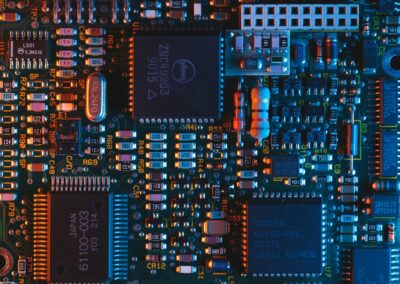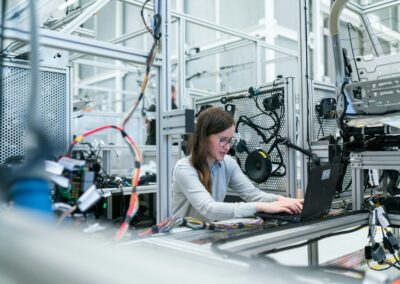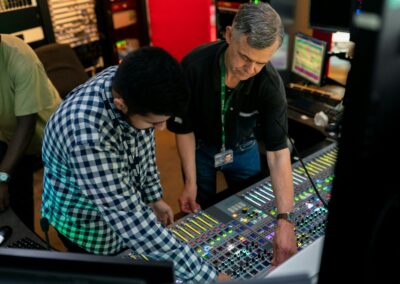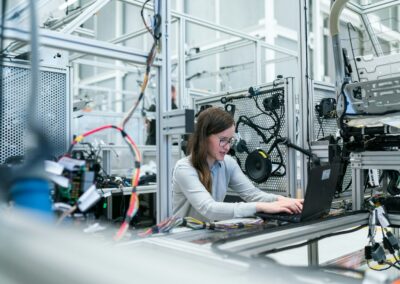How Digital Twin Technology is Shaping the Future of Manufacturing in Saudi Arabia and the UAE
The Impact of Digital Twin Technology on Manufacturing Efficiency
The integration of digital twin technology in manufacturing is revolutionizing the industry by enhancing production efficiency and improving quality control. Digital twins are virtual replicas of physical systems or processes, which are continually updated with real-time data from sensors and IoT devices. This technology allows manufacturers to simulate and analyze production processes in a virtual environment, leading to substantial improvements in operational efficiency.
In regions such as Saudi Arabia and the UAE, where industrial and manufacturing sectors are rapidly expanding, the adoption of digital twin technology offers a competitive edge. By creating accurate digital models of manufacturing systems, companies can monitor performance metrics, detect inefficiencies, and implement corrective actions swiftly. This proactive approach helps in minimizing downtime, optimizing resource allocation, and reducing operational costs. For example, in Dubai’s thriving industrial sector, digital twins can be used to streamline production lines and enhance overall productivity.
Moreover, the real-time analysis capabilities of digital twins enable manufacturers to predict maintenance needs and prevent unexpected breakdowns. By continuously monitoring the health of machinery and equipment, businesses can schedule maintenance activities before issues escalate, thereby avoiding costly interruptions in production. This predictive maintenance capability is essential for maintaining smooth operations and ensuring consistent product quality.
Enhancing Quality Control with Digital Twin Technology
Quality control is a critical aspect of manufacturing, and digital twin technology in manufacturing provides a powerful tool for ensuring product excellence. Digital twins allow manufacturers to create virtual simulations of production processes, enabling them to test and refine various parameters and configurations. This iterative approach helps in identifying potential quality issues before they impact the physical production process.
In Saudi Arabia, where the manufacturing industry is focused on producing high-quality goods, digital twins can be employed to monitor and control every stage of the production cycle. By integrating real-time data from sensors into the digital twin model, manufacturers can assess product quality at different stages and make necessary adjustments to maintain high standards. This capability is particularly valuable in industries such as aerospace and automotive, where precision and quality are paramount.
Additionally, digital twins facilitate better collaboration and communication among teams involved in quality control. With a centralized digital model, stakeholders can access real-time data and insights, leading to more informed decision-making and quicker resolution of quality-related issues. This collaborative approach enhances transparency and ensures that all team members are aligned in their efforts to achieve product excellence.
Strategic Implementation and Future Outlook
The successful implementation of digital twin technology in manufacturing requires a strategic approach that involves investing in the right technological infrastructure and fostering a culture of innovation. Businesses must equip themselves with advanced sensors, IoT devices, and digital twin platforms capable of handling complex data analysis. In regions like Riyadh and Dubai, where technological advancements are rapidly embraced, companies are well-positioned to leverage digital twins for operational excellence.
Executive coaching services play a crucial role in guiding business leaders through the adoption and integration of digital twin technology. Coaches can help leaders develop a clear strategy for implementing digital twins, manage organizational change, and build the necessary skills within their teams. By providing guidance and support, executive coaches ensure that businesses can fully realize the benefits of digital twins and stay ahead in a competitive market.
Looking ahead, the future of digital twin technology in manufacturing is promising. As advancements in AI and machine learning continue to evolve, digital twins will become even more sophisticated, providing deeper insights and more accurate simulations. For manufacturers in Saudi Arabia, the UAE, and beyond, embracing these technological innovations will be key to driving sustained growth and achieving long-term success in an increasingly complex and dynamic industry.
Conclusion
In conclusion, the adoption of digital twin technology in manufacturing offers significant advantages in terms of production efficiency and quality control. By creating virtual replicas of physical systems, manufacturers can optimize operations, enhance product quality, and reduce costs. The integration of digital twins with advanced technologies such as AI and IoT further amplifies their impact, providing valuable insights and predictive capabilities. With the support of executive coaching services, business leaders can effectively implement digital twins and leverage their potential for achieving excellence in manufacturing. As the technology continues to advance, it will play a pivotal role in shaping the future of the industry, driving innovation, and ensuring competitive success.
#digitaltwins, #manufacturingefficiency, #qualitycontrol, #SaudiArabia, #UAE, #Riyadh, #Dubai, #AI, #moderntechnology, #executivecoaching, #businesssuccess























